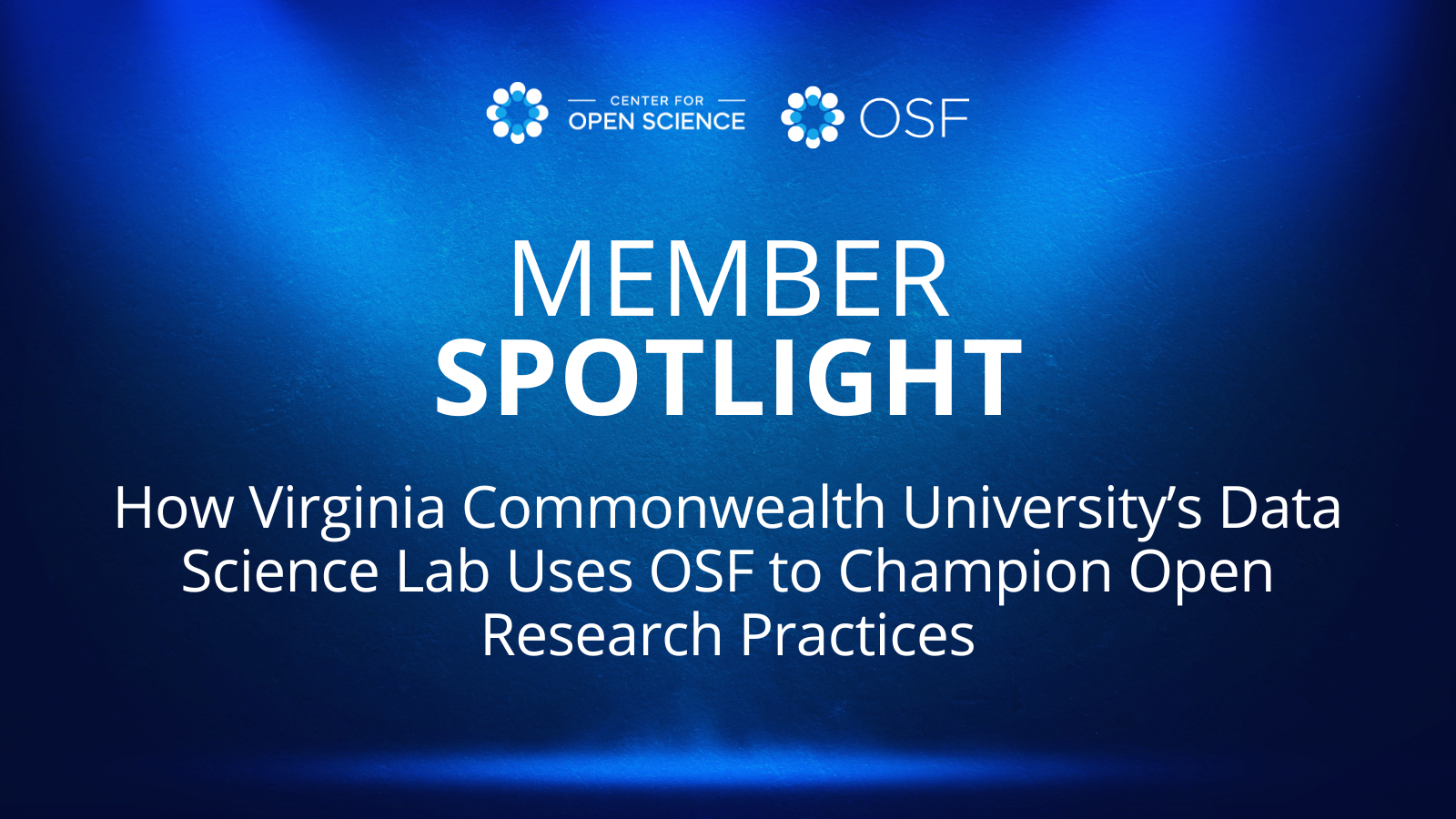
The following blog is based on a recent webinar with Virginia Commonwealth University. You can watch the full recording here.
Virginia Commonwealth University's Data Science Lab (DSL) is pivotal in fostering a culture of rigorous, transparent, and reproducible research within the university community. Through a multifaceted approach encompassing workshops, graduate-level courses, and collaborative efforts, the lab, established in 2016, supports researchers across the university to embrace open science practices.
DSL prioritizes education, offering two data science courses specifically designed to equip graduate students with the expertise to handle data responsibly and openly. These courses delve into fundamental open science principles while providing hands-on experience with relevant tools and methodologies. Additionally, collaborations between DSL and VCU Libraries include regular workshops that provide participants with a foundational understanding of the rationale and benefits of pursuing reproducible research practices. The workshops introduce popular tools and methodologies designed to enhance research endeavors. While DSL’s current efforts focus on biomedical research, the courses and workshops are open to anyone, regardless of degree program.
Leveraging the Power of OSF
The most popular workshop familiarizes researchers with the functionalities of the Open Science Framework (OSF). As an OSF Institutions member, VCU researchers, librarians, support staff, and administrators have tools and insights to promote open science practices through OSF. VCU’s Office of the Vice President for Research and Innovation and VCU Libraries sponsor OSF access at the university.
"The OSF is a really easy to understand introduction to how to put open science methods into practice," said Tim York, Ph.D., Professor in the VCU Department of Human and Molecular Genetics and Director of the Data Science Lab. "The OSF provides a user-friendly platform that connects seamlessly with other established tools, empowering VCU researchers to responsibly share their outputs."
Building Bridges at VCU
The collaborative approach between DSL and the library fosters a comprehensive understanding of open science practices as an integral part of the research process, empowering researchers to seamlessly integrate those practices into their projects, says Nina Exner, Associate Professor and Research Data Librarian at VCU Libraries. "One of the things that's good about our collaboration is that we can bring our various strengths and really focus on the researcher learning process. On the library side, there are a lot of different kinds of perspectives on what the OSF is useful for, and for me, the Data Science Lab is really the practitioner perspective.”
Cultivating Open Science Champions and Balancing Demand With Impact
DSL’s strategy is to cultivate open science adoption involving a "bottom-up" approach. By initially targeting students, they aim to equip them with the skills and enthusiasm to advocate for open practices within their labs. This strategy has created a positive feedback loop, attracting more students and garnering the attention and support of senior researchers.
One of the challenges DSL faces is the sheer amount of interest in its offerings. The data science courses routinely fill, highlighting the need for more resources. However, as York pointed out, "having a waitlist gives us some indication of success" and demonstrates the value researchers place on these open science practices.
The OSF platform is helpful for Exner and Dana Lapato, Ph.D., Assistant Professor in the Department of Human and Molecular Genetics. The two lead RCR (responsible conduct of research) training, where participants from throughout the university express interest in preregistration, preprints, and other open scholarship practices. “OSF is just a natural conduit for those kinds of conversations and talking about collaborations and finding other people who are using similar tools," said Lapato, who along with York also teaches the graduate data science courses. "We have students in our data science class from all over VCU—from the School of Medicine, the School of Pharmacy, the School of Nursing, the graduate school. We looked around, we tried to shop and find something that everyone would be happy with, and OSF was the winner by a mile."
Beyond its immediate impact on researchers, DSL’s efforts foster a wider culture of open science within VCU. The lab envisions expanding beyond biomedical research and collaborating with additional university departments. The library is also exploring avenues for integrating OSF into courses and research projects across VCU’s academic and medical campuses. "I think the sky’s the limit in terms of use cases for the OSF,” said York. “Our Data Science Lab is small, and it's only going to grow and get better when we include other members from across the university.”
Do you want to promote research transparency and reproducibility in your academic community? Learn how OSF Institutions can help.

6218 Georgia Avenue NW, Suite #1, Unit 3189
Washington, DC 20011
Email: contact@cos.io

Unless otherwise noted, this site is licensed under a Creative Commons Attribution 4.0 International (CC BY 4.0) License.
Responsible stewards of your support
COS has earned top recognition from Charity Navigator and Candid (formerly GuideStar) for our financial transparency and accountability to our mission. COS and the OSF were also awarded SOC2 accreditation in 2023 after an independent assessment of our security and procedures by the American Institute of CPAs (AICPA).
We invite all of our sponsors, partners, and members of the community to learn more about how our organization operates, our impact, our financial performance, and our nonprofit status.